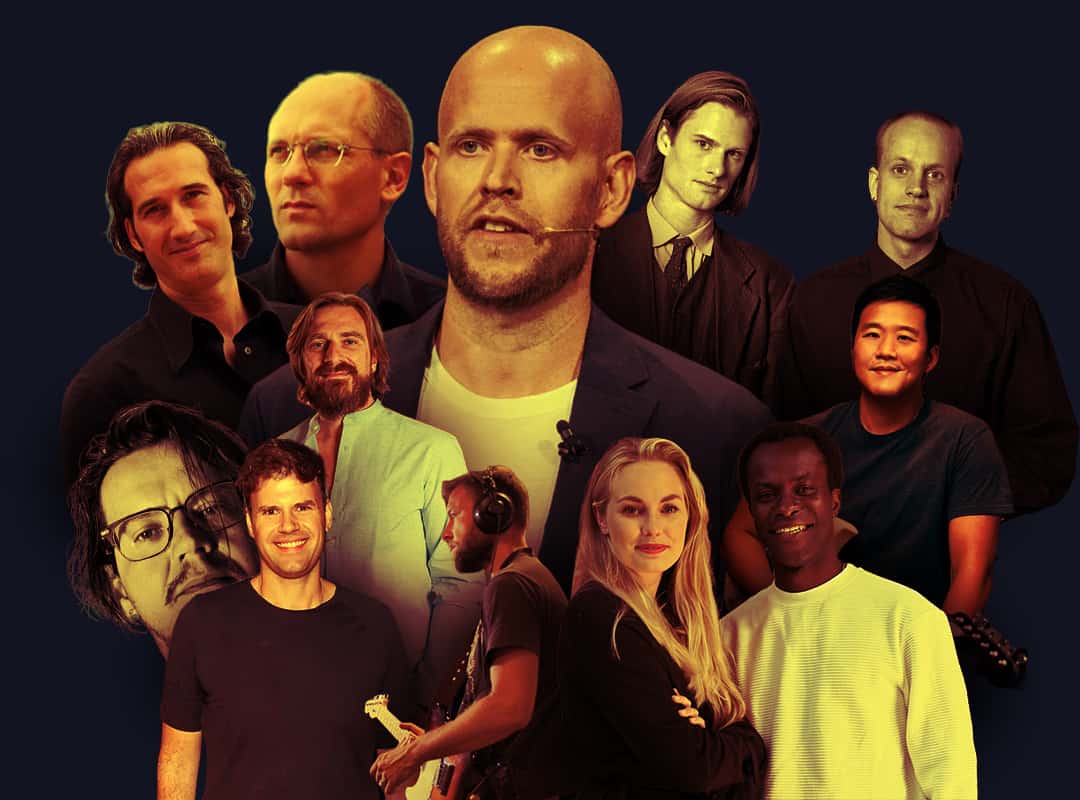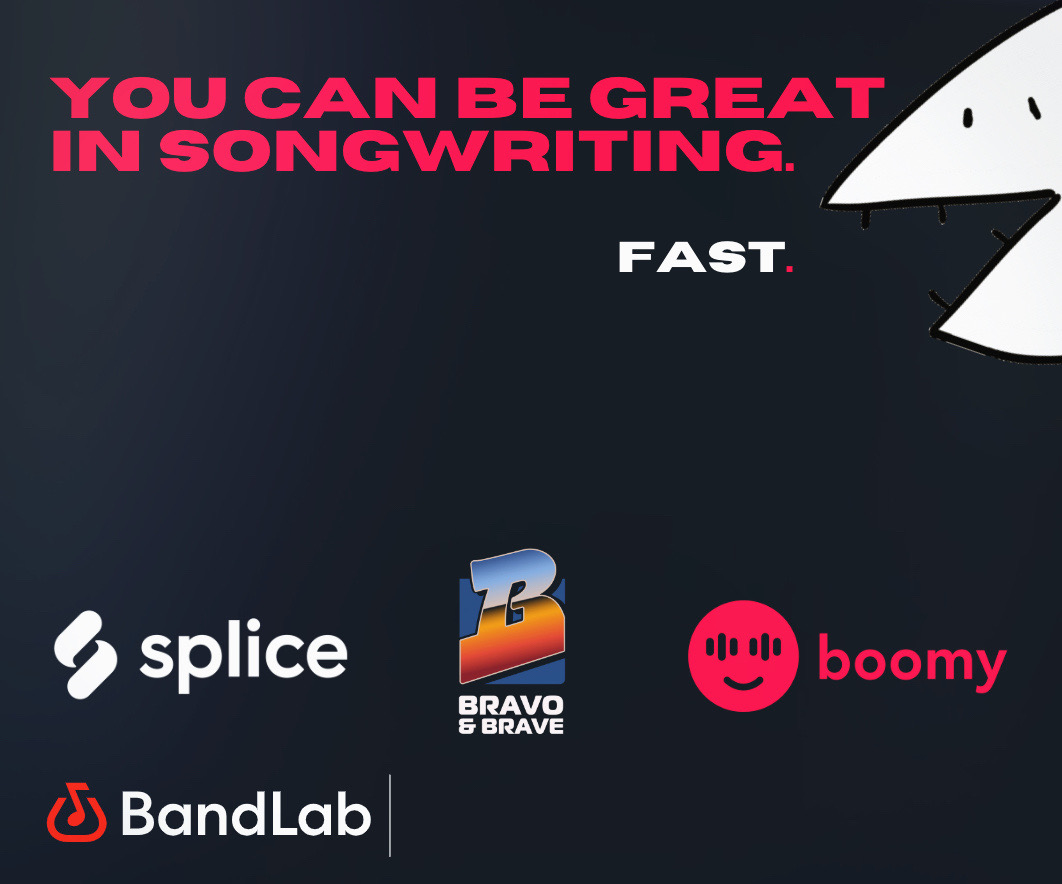

Music Technology Founders: Heroes, Big Names and New Entries (2023 Edition)
Music technology is the application of technology (hardware and software) to the musical arts; it encompasses the composition, recording, and playback of music, and it’s an industry that has received a lot of attention recently thanks to AI, NFTs, and millions of dollars of investment every year.
Music technology has been rapidly expanding as a subject over the past twenty years and can open many doors to a career in music and business.

Some names have created unforgettable products that are still in vogue today, other founders are working to grow new but already successful brands, and more recent names are entering the market with innovative startups. Let’s see who these founders are.
Heroes
Gerhard Behles and Robert Henke: Ableton (Germany)
Co-founders Gerhard Behles and Robert Henke came up with their idea for Ableton in Berlin in the mid-’90s when they were performing minimal dub-influenced techno under the moniker Monolake.
The history of Ableton starts in 2001, when the Berlin-based software company released its first product, Ableton Live—a digital audio workstation and audio sequencer that, among its many functions, allows musicians to easily store and trigger samples during their shows so audiences can watch them write songs in real-time. This game-changing software makes it easier for the average person to make music and use their computer as an instrument, as well as perform live without needing to know how to program their own software.
| HOT DEAL: New Sound of Techno (Melodic Techno sample pack) – Click here to checkout
Daniel Ek and Martin Lorentzon: Spotify (Sweden)
Stockholm-born Daniel Ek is the co-founder and CEO of the streaming music service Spotify. Daniel and Martin Lorentzon established Spotify AB in Sweden in April 2006, with Ek as CEO and Lorentzon as Chairman.
Prior to Spotify, Lorentzon was the co-founder of TradeDoubler, which acquired Ek’s Advertigo company the month before Spotify was founded – March 2006 – for SEK 10 million.
In October 2008, Spotify launched in a number of European territories, including the UK, Germany, France, Italy, Spain, Finland, Norway, and Sweden.
Stephan Schmitt and Volker Hinz : Native Instruments (Germany)
Native Instruments is a German company that develops, manufactures, and supplies music software and hardware for music production, sound design, performance, and DJing. The company’s corporate headquarters and main development facilities are located in Berlin, with additional offices in Los Angeles, Tokyo, London, Paris, and Shenzhen. Founders Stephan Schmitt and Volker Hinz began using the name Native Instruments in 1996, when they developed Generator, a modular synth software package (which would later form the foundation for their ongoing product, Reaktor).
Manfred Rürup and Karl “Charlie” Steinberg: Cubase (Germany)
Cubase was created by Manfred Rürup and Karl “Charlie” Steinberg, the founders of Steinberg. In 1983, when keyboard player Manfred and audio engineer Steinberg met at a recording session for a German rock band, they could never have dreamed that this chance meeting would blossom into one of the world’s largest manufacturers of music and audio software and hardware.
Steinberg, the company the pair founded a year later, will celebrate a remarkable 40 years of success in 2024, with more than 1.5 million users worldwide and a slew of award-winning, technologically advanced music and media production products that have revolutionized the music, video and film industries.
Big Names
Alexander Ljung and Eric Wahlforss :SoundCloud (Germany)
Alexander Ljung and Eric Wahlforss bonded over a shared love of music and decided to create a platform that was something like Flickr or WordPress but for sound. It turned out to be a godsend for aspiring musicians, mainstream artists, DJs, and podcasters alike, who have collectively uploaded over 100 million tracks.
Steve Martocci: Splice (USA)
Splice essentially treats music like open-source code — or as Martocci has often said — think of it as the musical equivalent to GitHub, an open software platform used by millions of programmers and software developers to share programming tools and code. Using Splice, musicians can preview millions of samples of loops and then can use these snippets of audio without worrying about royalties.
Max Ciociola: MusixMatch (Italy)
Musixmatch is the world’s largest lyrics platform — where you can search, enjoy, and share lyrics from any track, anywhere in the world. Musixmatch displays lyrics on the screen to show the music being played in real time. In its native applications, it supports the ability to scan all the songs in a user’s music library and find lyrics for them, as well as to be used as a music player.
Kuok Meng Ru: BandLab (Singapore)
BandLab Technologies was founded in 2015 by Kuok Meng Ru and Steve Skillings. Kuok was a Singaporean mathematics graduate from Cambridge University who is the son of agribusiness conglomerate Wilmar International‘s billionaire founder and CEO Kuok Khoon Hong; and Skillings was the developer of the JamHub audio mixer. Kuok was also the owner of the music retailer Swee Lee, acquired in 2012. BandLab Technologies’ first product, a Cloud Digital Audio Workstation (DAW) called BandLab, was released in November same year.
Eugeny Naidenov: Muse Group (Russia)
Muse Group is the parent organization for many popular music technology products. Their wide repertoire includes the world’s most popular online sheet music collection (at MuseScore.com) and MuseScore 4, popular free notation software. In addition to that they made Audacity, which remains one of the world’s most popular audio editing tools for podcasters and many bedroom musicians. Another one in the catalog is Ultimate Guitar (Ultimate Guitar USA LLC), or simply UG, which is an online platform for guitarists and musicians. Its website and mobile application provide guitar tablature catalogs and chord sheets. UG’s platform also includes video courses, reviews of music and equipment, interviews with notable musicians, and forums. It was started on October 9, 1998, by Eugeny Naidenov. The Muse Group is now headquartered in Cyprus.
Peer Åström, David Stenmarck, Oscar Höglund, Hjalmar Winbladh and Jan Zachrisson: Epidemic Sound (Sweden)
Epidemic Sound is a global royalty-free soundtrack-providing company based in Stockholm, Sweden. The company was established in 2009 by Peer Åström, David Stenmarck, Oscar Höglund, Hjalmar Winbladh, and Jan Zachrisson. It has a library of over 35,000 soundtracks and 90,000 sound effects. All Epidemic Soundtracks come in stems, which lets users remove certain layers of a track – like drums, bass, or the melody. Epidemic Sound music is also played in public spaces like restaurants, hotels, shopping malls, and car parks. Epidemic Sound’s tracks are produced by a roster of music creators who get paid upfront for each track and half of the track’s streaming revenue.[5]
Philip J. Kaplan: DistroKid (USA)
DistroKid is an independent digital music distribution service, founded in 2013 by American entrepreneur Philip J. Kaplan. DistroKid principally offers musicians and other right-holders the opportunity to distribute and sell or stream their music through online retailers such as iTunes/Apple Music, Spotify, Pandora, Amazon Music, YouTube Music, Tidal, Deezer, and iHeartRadio among others.
New Entries
Stephen Gyasi & Lara Larsson: FreshSound (Sweden)
Freshsound wants to offer music creators a fair price for their creations via its self-serve licensing platform – currently engaging the Nordics in its planned international expansion.
Lorenzo Brizzo: Bravo & Brave (Italy)
Bravo & Brave‘s music harmony catalog offers music producers and songwriters collections of harmony progressions that can be used in modern music production and to improve their music theory proficiency.
Michel D. Traore: Anotherblock (Sweden)
Anotherblock provides a blockchain based platform to decentralize music rights, connecting non-fungible tokens to royalty rights.
Oleg Stavitsky: Endel (Germany)
Endel is a paid generative music app that creates personalized sound environments (called soundscapes) to match users’ activities. The app provides preset modes for relaxation, focus, sleep, and walking, and reacts to the time of the day, weather, heart rate, and location to create unique compositions.
Conclusion
As seen from our list, startups competing in this sector are building the marketplaces, platforms, infrastructure, and instruments that are changing how music is created, listened to, shared, and financed.
Next article: Top 10 Must-Have Plugins for Music Production in 2023
Image credits: Lorenzo Brizzo


- Arodes cover Interview
- Armin van Buuren: Breathing In [Exclusive Interview]
- Ibiza 2024: What To Expect
- Burak Yeter: A Day In Space [Exclusive]

